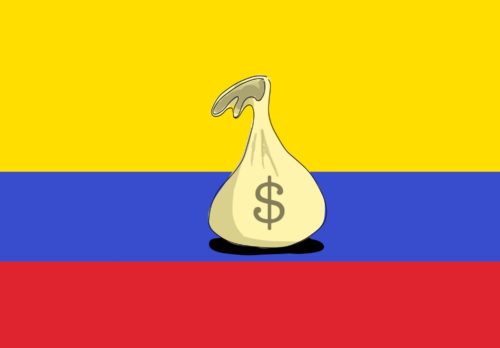In ‘debt bondage’ to China

In what he describes as a “predatory approach,” Indian author and scholar Brahma Chellany says China has been turning its ability to lend money to smaller nations to secure highly favorable deals, using the recent 99-year lease for Sri Lanka’s Hambantota as a prime example.
- While China seeks to portray its role in international development as creating win-win partnerships, Chellany explains, “Chinese loans are collateralized by strategically important natural assets with high long-term value (even if they lack short-term commercial viability)… In exchange for financing and building the infrastructure that poorer countries need, China demands favorable access to their natural assets, from mineral resources to ports.”
- Similar tactics have been used to open China’s first overseas military base, in Djbouti, and Kenya’s port of Mombasa may soon share a similar fate as Hambantota.
- Chellany notes the irony inherent in these relationships. “China is replicating the practices used against it in the European-colonial period, which began with the 1839–1860 Opium Wars and ended with the 1949 communist takeover — a period that China bitterly refers to as its ‘century of humiliation,’” he writes.
EARLIER THIS WEEK:
China’s ride-hailing giant secured $4 billion in new financing, following a $4.5 billion fundraising round earlier this year, and will earmark cash for global expansion and AI technology. TechCrunch notes that Didi’s current valuation is now “likely higher than Uber’s most recent/ongoing round.”
China will shake up the global crude-trading scene when it launches its own yuan-based oil futures contract, which could happen as soon as the end of this year. However, foreign players may hold back given the unpredictable state of commodities markets in China.
China will create another major market in the coming years, when it launches the world’s largest platform for trading carbon emissions. Key details of the long-awaited initial phase of the plan were announced this week: It will be limited to the power sector and cover around 1,700 utility companies.
The Chinese internet giant announced that it will take a 5 percent stake in Yonghui Superstores, worth around $640 million, a month after rival Alibaba announced that it would make a $2.9 billion investment in Sun Art Retail, another supermarket chain.
- Sour grapes
China’s wine glass is half empty / Caixin
Chinese winemakers struggle to compete with a growing demand for imports. - Real estate
China’s Wanda to build 1,000 smart malls despite pressures / Nikkei Asian Review (paywall)
“Tycoon boasts new domestic target after overseas shopping spree halted.” - Mobile phones and more
Behind the fall and rise of China’s Xiaomi / Wired - Self-driving cars
China’s Baidu sues ex-driverless chief over alleged secrets theft / Bloomberg - Overseas scrutiny of Chinese firms
U.S. experts resign from monitoring China’s ZTE Corp: sources / Reuters
Germany launches probe of Chinese bid for aerospace supplier Cotesa / Reuters





